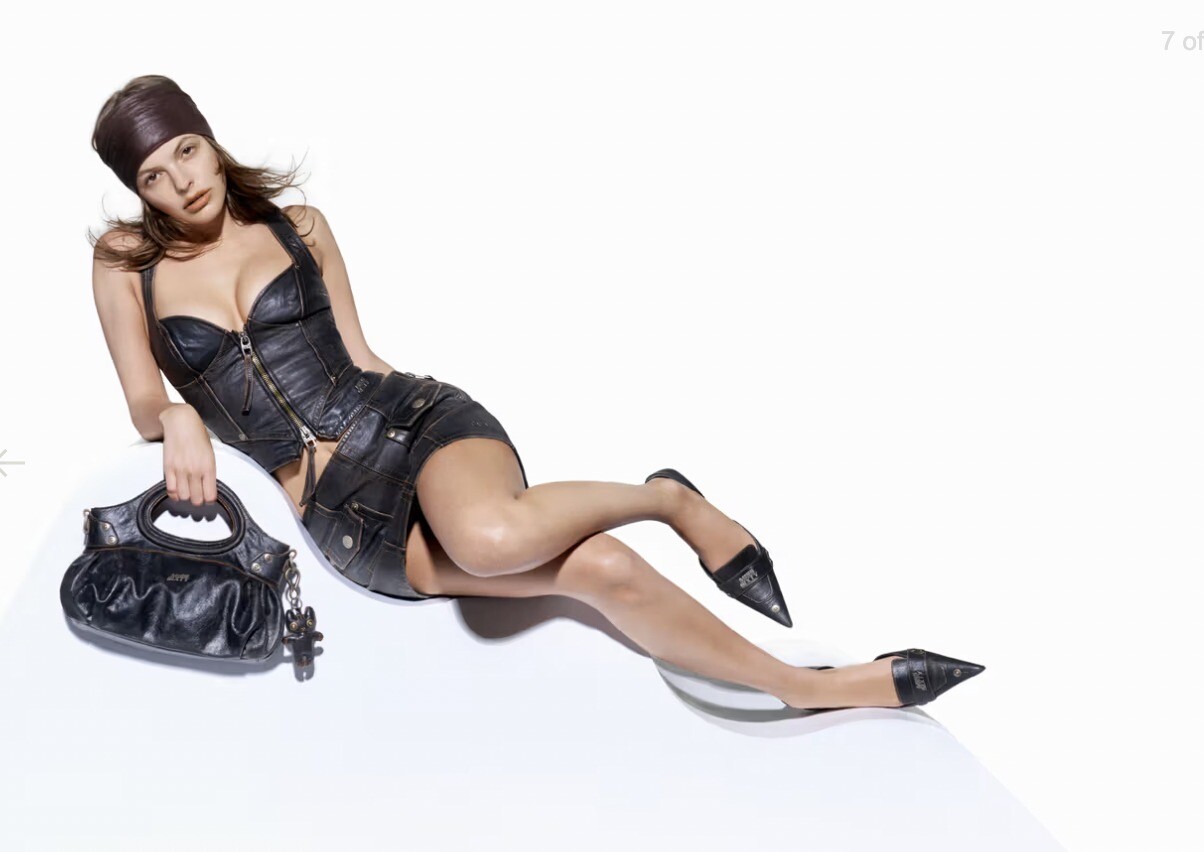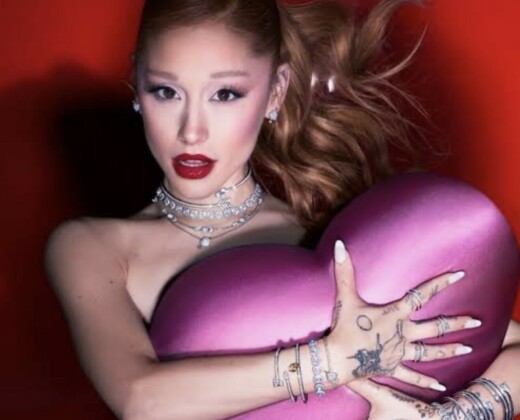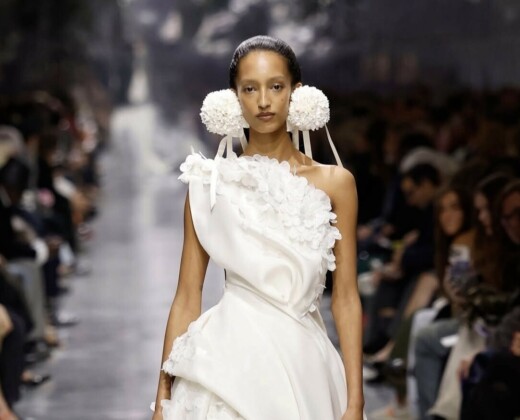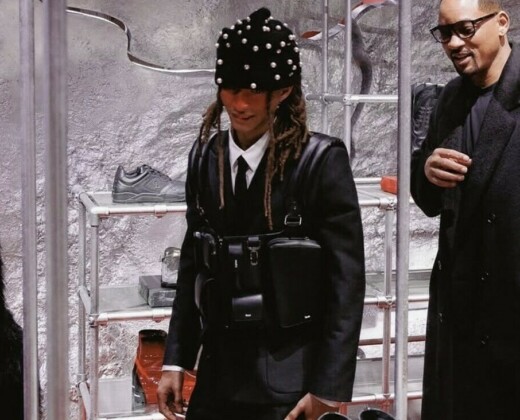In an industry increasingly defined by improbable matchups and algorithm-tailored hype, the new
Charlotte Knowles x Miss Sixty collaboration stands out not because it’s surprising, but because it’s
strategically brilliant. A partnership between London’s cult-favourite provider of subversive
femininity and the Italian Y2K titan best known for bedazzled denim might have read as chaotic on
paper. Instead, it has produced one of the most culturally attuned capsules of the season. This is not
nostalgia for nostalgia’s sake, it is an excavation. A reframing of millennial-era hyper-femininity
through CK’s signature tension: sharp softness, lingerie-as-armour, and silhouettes that feel both
dangerous and tender.





Charlotte Knowles (the design duo now known as KNWLS) has always flirted with the sensuality
of the early 2000s: low-rise lines, body-conscious draping, and silhouettes that weaponise fragility.
Miss Sixty, meanwhile, practically is the early 2000s. Their denim dominated adolescent closets
from Milan to London, defining a generation’s relationship to sexiness. Together, they have created
something neither brand could have achieved alone: a collection that acknowledges the messiness
of the Y2K revival, interrogates it, and then reassembles it into something sharper, darker, and
decidedly modern.
The collab’s denim pieces are the anchor: washed, contoured, and treated like second skin. Miss
Sixty’s legacy of hyper-feminine denim meets KNWLS’ more dystopian lens to produce garments
that feel like the uniform of a girl who knows she’s being watched and chooses to control the
narrative.
Low-rise flares appear with corseted paneling; micro-skirts come with moto-inspired hardware; and
jeans are cut to curve around the hip in a way that feels undeniably erotic without slipping into
costume territory. It is early-2000s sensuality, but re-authored by a generation raised on the male
gaze and now refusing it.
KNWLS excels at garments that read like lingerie but act feel like empowerment, and the
collaboration leans into this duality. Sheer mesh tops, lace-up bodices, and second-skin knits appear
throughout the collection, carrying the tension between exposure and protection that defines the
brand’s core DNA. Under Miss Sixty’s commercial sensibility, though, these ideas become
accessible without being diluted. The pieces are not pandering to the TikTok-addled micro-trend
calendar—they’re responding to the fact that femininity today is fluid, performative, and often
politically charged.”
There is one undoubtable standout theme: the unapologetic return of the going-out top.Not the
rhinestoned halters of mid-2000s club culture. These are architectural, sculpting, and deliberately
contradictory. They reference the era without reenacting it, which is ultimately what separates this
collaboration from the usual Y2K revival fare.
This collaboration lands at a time when fashion is grappling with nostalgia fatigue. Y2K has been
chewed up and spat out by the trend cycle for years, often stripped of its politics and context. But
Charlotte Knowles x Miss Sixty feels different: it is not chasing virality. It is confronting the
aesthetic head-on and reclaiming its complexity.
Rather than being a marketing stunt, this partnership signals a broader movement in fashion, one
where craftsmanship meets cultural critique, where commercial heritage brands delegate creativity
to younger designers with something to say. Charlotte Knowles x Miss Sixty isn’t about reliving the
past; it’s about dissecting it. If this is where the Y2K revival is heading next, the industry should
take notes.
Words by Fabiana Gutierrez







